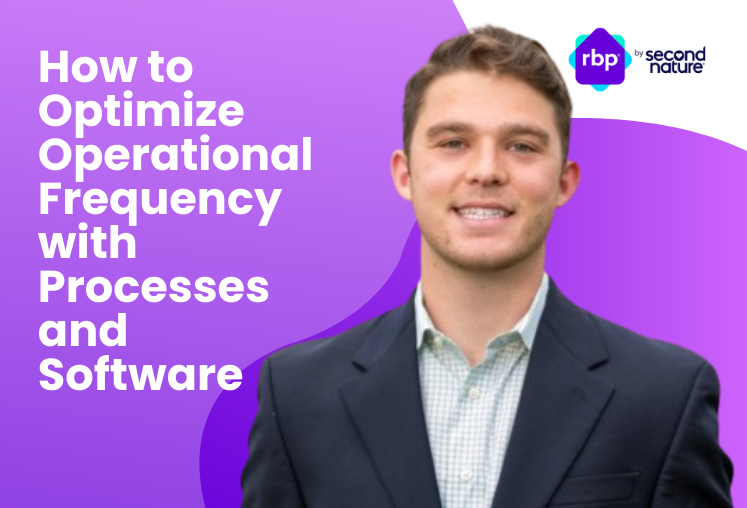Ancillary revenue is a huge profit driver for property management companies. Today, we're looking at what ancillary revenue is, how it can give you better results, and how to get started building ancillary revenue streams.

What is ancillary revenue?
Ancillary revenue refers to any additional income not including rent that you derive from the properties you manage. By becoming greater service providers, PMs create opportunities for more revenue streams. There is a lot of money to be made in ancillary income in the property management industry and real estate industry. But many property managers don’t even consider the wealth of opportunities to increase profit, grow your business, and increase the satisfaction of your residents that ancillary income opportunities provide.
It may seem counterintuitive to suggest that a practice exists that will simultaneously increase the amount your residents pay and increase their satisfaction with you, but if you provide the right ancillary services, and your residents find value in them, you can build a winning situation for all involved parties.
How can property managers generate ancillary revenue?
The best way to sustainably drive ancillary income for you and your business is through generating more value that your residents and investors want and charging for what that value is worth. Ancillary charges can apply to your investor clients and your residents.
In short, property managers should figure out what’s important to their residents and clients and monetize those things. Ancillary revenue opportunities can come from programs that drive resident satisfaction, such as Resident Benefits Packages, property upgrades, pet insurance, pet rent, etc. You can also drive extra revenue through additional fees such as application fees or pet fees for new residents or for behaviors you want to discourage, such as late payment fees, early termination fees, paper lease fees, vendor screening fees, etc.
Ultimately, each of these programs help to achieve what we call a “triple win.” A triple win, as described in this video, is any concept that manages to benefit the renter, you and your team of property managers, and the property owner.
The importance of the triple win comes from the idea that long-term success that results in long-term profit must correlate with long-term satisfaction. Keeping all involved parties in a transaction satisfied will lead to high rates of re-signing, whereas ancillary income programs that residents don’t find value in can decrease renter satisfaction and hurt your bottom line in the long-term.
Ancillary revenue stream examples in property management
Let’s look at some of the most common and successful ancillary revenue examples. Ancillary programs work well for both multifamily and single-family rentals. You can break ancillary charges down into two categories: fees vs. special programs.
Ancillary Fees
First, there’s the ancillary fees approach. Those can include the following.
Resident-Focused
- Security Deposit Processing Fees
- Leasing or Lease Amendment Fees
- Paper Lease Setup Fees
- Lease Renewal Fees
- Renters Insurance
- Late Fees
Investor-Focused
- Inspection and Maintenance Monthly Fees
- Marketing Fees (social media, etc.)
- Insurance Risk Mitigation Fees
- Vendor Screening Fees
- Rent Protection or Eviction Fees
Essentially, property managers should be sourcing income on anything they’re spending money on themselves. This ensures that you can continue to grow, add on value, and pay your employees.
Ancillary fees also help encourage the kind of behavior you want from your investors and residents.
You don’t want residents to pay late? Incentivize on-time payments by adding a fee for late payments.
You don’t want investors requiring you to use their vendors instead of yours? Charge a small fee for vendor screening. Then you’re either getting paid for your extra time, or the investor will decide it’s not worth it, and you’re saved the extra burden on your team.
Special Programs
Of course, property managers can also generate additional revenue by developing programs that boost resident happiness and satisfaction. These programs can also help encourage the behavior you want, but the goal is more driven by a desire to improve the resident experience.
The most popular – and effective – form of special program is the Resident Benefits Package. An RBP can include several different benefits for residents, from credit reporting to move-in concierge services to identity protection. And they’re easy to monetize for property managers.
Increasing property management revenue
The residential real estate market is changing. By finding new ways to generate revenue, property managers can accelerate business growth. Ancillary revenue is one of those ways, and it works by providing real value to the resident. These programs don’t necessarily have to directly create revenue, although many do, but the key is always to create value.
Of course, some programs work better than others – and some attempts to drive ancillary income can actually do the opposite: drive investors away, or cause resident complaints.
Let’s look at a few examples of what is and isn’t working for property managers.

Ancillary revenue streams that are working
Here are a few examples of the best drivers of ancillary revenue in property management.
Resident Gift Programs
One example of a program that creates value for the resident without charging the resident is a Christmas gift program run by the Home River Group based out of Boise, Idaho.
Residents at HRG’s properties receive a gift package every holiday season that includes gift cards to local restaurants, movie theaters, bowling alleys, etc. This comes at no charge to the resident, but it does create happy renters, which leads to sustainable revenue in property management.
24/7 Maintenance
Another great example is 24/7 maintenance, which is often amenitized. Professional SFR managers have web portals, apps, 24/7 hotlines as part of their operations that enable a more professional and convenient resident experience. And it leads to faster resolution.
Including maintenance support in a resident benefits package helps differentiate your service. Adding value through a resident benefits package also adds a new revenue stream for a property management business.
Convenience Services
Convenience services are great examples of ancillary income programs that do drive immediate profit and achieve a triple win. Residents tend to realize a lot of value from convenience services, and these services have become the expectation for renters.
Second Nature’s air filter delivery service, which is widely used by property managers around the country, achieves this by providing the resident with cleaner air to breathe and lower utility bills, providing the owner with the peace of mind of knowing the air filters are being changed on time, and providing you with some added ancillary revenue.
A great way to identify opportunities for ancillary revenue services that achieve a triple win is by asking your residents. Just ask them. They’ll tell you what services they’re interested in and willing to pay for. This will not only help you identify key insights for your business, but it has a positive side effect of improving the relationship you have with your residents.
What doesn’t work in driving ancillary revenue
As you can probably infer, programs that don’t work will be the ones that don’t achieve the aforementioned triple win. Property managers are starting to realize the value of the long-term game. The extra effort required to make sure residents feel respected and not leveraged specifically for profit creates a lot of value for the PM as it keeps renewal rates high.
Here’s the type of behavior PMs should avoid when designing an ancillary revenue strategy.
Cheap Money Grabs
When your residents feel like they're just a warm body that pays monthly rent, that's really going to sour the relationship that you need to be focused on here. Truthfully, ancillary income can be created very easily, but cheap money grabs that make residents feel used are not going to be sustainable, and sustainable is the key word here.
Not Understanding What Residents Value
If the resident doesn’t see value, your program’s long-term prospects are not going to be good. Understanding where a resident will find value also requires you to understand how a resident perceives value.
There is a saying in marketing that perception is reality, and whether or not you realize it, you're perpetually marketing your properties to residents. How they perceive their experience is going to affect how they feel when it's time to renew.
Mixed Messaging
The best ancillary benefit package in the world is going to be perceived negatively if the messaging around it uses words with negative connotations.
Avoiding words like “fees” can help prevent a negative perception of a service you as the property manager are providing. A perceived lack of value for a required program contributes to a resident that feels disrespected, and a perceived lack of value for an optional program results in a program nobody uses.
Either way, no benefit to the resident means no benefit to you.
In the end, the best way to drive ancillary income is to find programs and services that add value for your residents and clients, and generate profit for your business.
Topics:



